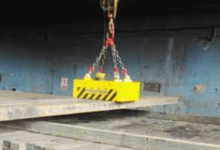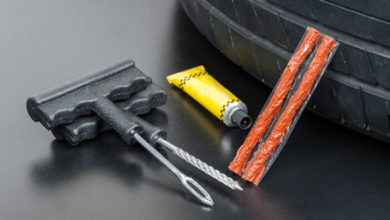Api 570 Certified Inspectors: The Gatekeepers Of Process Piping Quality

Are you interested in ensuring the safety and quality of process piping systems? Then API 570 certification might be for you.
As an API 570 certified inspector, you play a crucial role in maintaining the integrity of process piping systems, from design to operation. You are the gatekeeper of process piping quality, responsible for identifying potential hazards and ensuring compliance with industry standards and regulations.
To become an API 570 certified inspector, you must meet certain requirements and pass a rigorous exam. But once you have earned your certification, you will be equipped with the knowledge and skills needed to perform inspections that help prevent accidents, reduce downtime, and save lives.
In this article, we will explore the importance of API 570 certified inspectors in the process piping industry, their responsibilities, and their contributions to improving safety and efficiency in this critical field.
Key Takeaways
– API 570 certification ensures safety and quality of process piping systems by identifying potential hazards and ensuring compliance with industry standards and regulations.
– Certified inspectors prevent accidents, reduce downtime, and save lives while contributing to the overall quality and safety of process piping systems.
– Staying up-to-date with industry standards and regulations is crucial for API 570 certified inspectors, who must meet certain training requirements to maintain their certification status.
– API 570 certification benefits both individuals and companies by ensuring that companies have qualified personnel who can effectively manage the integrity of their piping systems and providing opportunities for professional growth.
Overview of the Importance of API 570 Certified Inspectors
You can’t underestimate the importance of having API 570 certified inspectors on your team when it comes to ensuring the quality and safety of your process piping. These inspectors are highly trained professionals who have passed rigorous exams and demonstrated their ability to inspect, evaluate, and maintain process piping systems according to industry standards.
By hiring API 570 certified inspectors, you can ensure that your facilities are compliant with government regulations, reduce the risk of accidents or equipment failure, and increase overall efficiency.
One of the key benefits of API 570 certification is that it opens up a wide range of career opportunities for certified inspectors. With this certification, individuals can work in various industries such as oil and gas, chemical manufacturing, power generation, and more. Additionally, they can advance their careers by becoming supervisors or managers in their respective fields.
Overall, having an API 570 certified inspector on your team not only ensures compliance and safety but also provides opportunities for professional growth.
Now let’s take a look at the requirements for obtaining this certification.
Requirements for API 570 Certification
To become eligible for the API 570 certification process, you must have a minimum of three years of experience in the inspection, repair, alteration, or construction of piping systems. You must also pass an exam that covers topics such as codes and standards related to piping inspection, corrosion, and material properties.
The benefits of API 570 certification are numerous. It enhances your credibility and marketability within the industry by demonstrating your knowledge and competency in the field. For companies, it ensures that they have qualified personnel who can effectively manage the integrity of their piping systems.
Overall, obtaining an API 570 certification is a vital step towards ensuring the safe and reliable operation of process piping systems. With these qualifications under your belt, you’ll be ready to take on the responsibilities of an API 570 certified inspector.
Responsibilities of API 570 Certified Inspectors
As an API 570 certification holder, your role as a piping system expert is crucial in ensuring that the equipment operates safely and efficiently. You are responsible for conducting inspections of process piping systems to identify potential defects or damage that could compromise the integrity of the system.
To do this, you must have a deep understanding of inspection techniques such as visual examination, ultrasonic testing, magnetic particle testing, and radiography. In addition to identifying defects, you must also develop maintenance strategies that address these issues promptly to prevent further damage or failure.
This involves analyzing inspection data and making recommendations for repairs or replacements based on industry standards and regulations. As an API 570 certified inspector, you play a critical role in maintaining the safety and reliability of process piping systems by ensuring they are functioning properly through regular inspections and following proper maintenance strategies.
Staying Up-to-Date with Industry Standards and Regulations
Staying up-to-date with industry standards and regulations is crucial for any professional in the field of piping system inspection. As an API 570 certified inspector, you must keep yourself informed about the latest developments in your industry to ensure that you’re providing top-quality service to your clients.
Industry updates can come in many forms, such as changes in codes and regulations, new technologies, or emerging trends. It’s your responsibility to stay on top of these updates by attending training sessions, participating in seminars and conferences, and reading relevant publications.
In addition to staying abreast of industry updates, API 570 certified inspectors must also meet certain training requirements to maintain their certification status. This includes completing a minimum number of hours of continuing education each year and passing recertification exams every three years.
By investing time and resources into ongoing training and education, you demonstrate your commitment to excellence as a process piping inspector. Your dedication not only benefits your own career but also contributes to the overall quality and safety of process piping systems.
With this understanding, let’s explore how API 570 certified inspectors contribute to the process piping industry as a whole.
Contributions of API 570 Certified Inspectors to the Process Piping Industry
Keeping up with the latest developments in the piping industry is essential for API 570 certified inspectors who want to make valuable contributions. These professionals play a crucial role in maintaining process piping quality and ensuring that safety standards are met.
They are responsible for conducting inspections, identifying defects, and recommending repairs or replacements according to industry regulations. API 570 certified inspectors also have access to unique career opportunities and training programs.
With their specialized knowledge and skills, they can work in various industries such as oil and gas, chemical plants, power generation facilities, and more. Additionally, certification programs offer ongoing education and professional development opportunities that keep them up-to-date with evolving technologies and regulations.
As gatekeepers of process piping quality, API 570 certified inspectors contribute significantly to the safety of workers and the public while advancing their careers through continued learning.
Conclusion
In conclusion, you now understand the importance of API 570 certified inspectors in ensuring process piping quality. These professionals are the gatekeepers who ensure that all regulations and standards are met during the inspection process. They have a significant responsibility to maintain safety and prevent any potential hazards from occurring.
To become an API 570 certified inspector, one must meet specific requirements and undergo rigorous training. It’s essential for these inspectors to stay up-to-date with industry standards and regulations to provide accurate inspections. Their contributions to the process piping industry cannot be overstated, as they play a crucial role in maintaining safe operations for various industries such as oil and gas, chemical processing, and power generation.
Overall, API 570 certified inspectors are vital assets to any organization that deals with process piping systems. Their expertise ensures that all equipment is functioning correctly while adhering to strict safety guidelines. As technology continues to advance, it’s crucial for these professionals to remain knowledgeable about new developments in their field so they can continue providing high-quality inspections that keep everyone safe.







